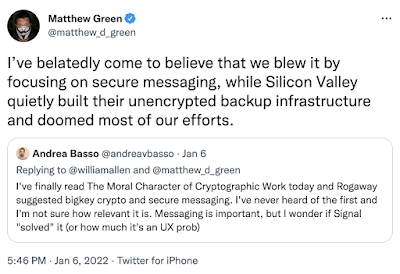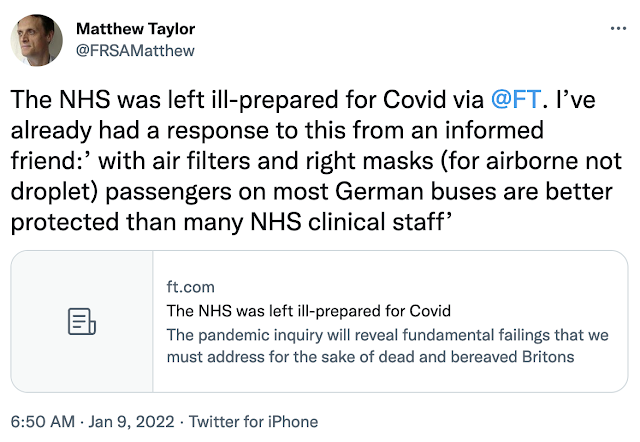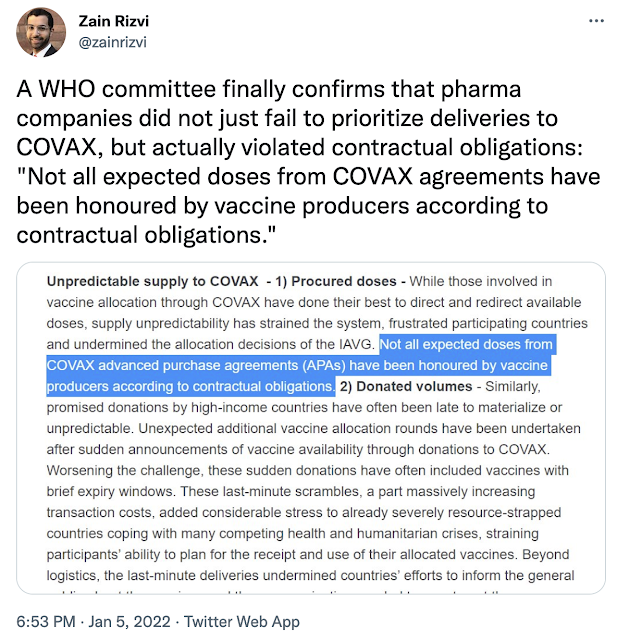Weeknotes: learning, smart paperwork, cash
The highway in BC which was comprehensively destroyed in the dreadful floods in mid November actually re-opened in December, thanks to astonishing engineering work. Meanwhile, Colorado's latest fires suggest the return of the urban firestorm - a very different proposition to the rural fires which are more familiar. (HT Nathan Schneider for the link)
Why do education secretaries hate online learning, asks Martin Weller:
On the one hand, all Governments like to berate education for not fully preparing students for the modern workplace. They unveil plans about how they will be a modern, 21st century, digital economy. And yet, successive education secretaries have berated online learning, which one would think was an essential component in realising both of the previous aims. And not just offer up some valid criticisms around issues of retention or engagement, say, but they use terminology that portrays online learning as, at best, a lazy, cheap option and at worst, some form of abuse.
Picked this from a good thread on using Discord in education settings and the various advantages it has over other chat/communications platforms - the importance of mental health considerations in accessibility:
 |
| https://twitter.com/kawaiilovesarah/status/1478770144637767681 |
Benedict Evans shares his "tech questions for 2022." Thanks Patrick Tanguay for the heads-up. Of course web3/crypto gets a mention:
The tech itself is in a period of massively increasing sophistication and complexity, as everyone builds on an open canvas and builds capability on a simple idea - early PCs or indeed the early consumer internet looked like this. But the more layers, abstractions, building blocks and primitives are created, the harder it is to know which will resolve into things normal people can use, and, paradoxically, the more likely gatekeepers become. ... Meanwhile, what happens when the ideological fervour of decentralisation meets gravity - the dynamics and centralising forces of real products with real users? The web is radically decentralised, but centralised search and social sit on top. Open source, another crazy, religious idea, was going to transform tech, and it did! - but Office is still a huge business 25 years later. The iPhone is full of open source, and yet it isn’t open, and yet, with millions of apps and billions of downloads, in what senses and at what layers is it ‘closed’ and ‘open’?and privacy:
We want privacy, but don’t agree on what that means.
This matters in an immediate sense because advertising & marketing is a $1tr industry, a third of it is now online, and it’s the single most important lever for ecommerce on one hand and the growth of new brands and new competitors on the other. Most of this has been based on cookies, and privacy concerns mean that cookies are now going away, in the ‘Great Cookie Apocalypse’, but we don’t know what will replace that. The industry is trying to create ways to show ads that are both relevant and private, and there’s no barrier to that in principle. Advertisers almost never actually want or need any personal information... Meanwhile, of course, if we don’t get an answer then by default Google, Apple, Facebook and Amazon do okay and everyone else is squeezed out - privacy conflicts with competition.
His example: "If I ask my Apple Glasses “I met someone from Disney last week, wearing a red shirt - what was his name?” what privacy issues arise?" is a nice one of the kind of real function many people might value from tech. This echoed several recent reflections in my household about how hard it is to answer simple questions where data clearly exists, but where there is no way to search. Such as, where is the nearest waterfall to me? His notes on China and the tech market are also interesting.
The other big 'state of the world' that I've enjoyed reading is the Well's annual thread, and I've found enough highlights there to merit a separate post. It was a good and varied thread, this year.
Dave Birch notes the difference between digital money and digital cash:
One of the great attractions of building a new digital cash infrastructure to implement a digital currency, instead of just laying a simple peer-to-peer protocol on top of the existing digital money infrastructure, is that it would add diversity to the payment system and therefore increase resilience in this vital national infrastructure.... If the existing digital money infrastructure goes down for any reason - and this happens all the time - it seems to me that a parallel digital cash system built on different rails should carry on working. ... This ability to transact between devices that are not connected to a network at all either because the cloud is down, or there is no mobile network or there is no power because of a natural disaster was also a key design requirement for the Chinese digital currency, as it should be one for any other digital currency that intends to replace, or even complement, cash.
That’s actually a tougher ask than it seems at first and December’s failure at Amazon Web Services (AWS), when the Amazon cloud vanished not once but twice, shows just how tough. Amazon have all the money in the world and I don’t doubt they employ some of the very best engineers in the world, but even that combination can’t deliver 100% uptime. And when AWS went down, the impact was significant. Indeed, as the Wall Street Journal pointed out, some vacuum cleaners, light switches and cat-food dispensers stopped working.
He concludes sagely:
The Facebook and Amazon failures performed the useful function of reminding us that vague talk about networks and clouds and blockchains is no substitute for the kind of detailed risk analysis and countermeasure development that will be required to create the vital national infrastructure for CBDCs.
Heather Burns poses a speculative fiction scenario - or is it a real one?
One day during a pandemic winter, an email drops into the inbox of an employee at a global corporation. That employee is in charge of a speculative open source project, controlled by the company. To its credit, the open source project has a global, vibrant, and wonderful contributor community spanning nations, races, skills, abilities, and perspectives. To its demerit, the project has no transparent governance, decisions about the project are not made public, and project officials are not elected by, accountable to, or removable by the open source community.
The email requests that the project send a qualified representative to an urgent meeting, at the White House, to discuss how their project has become a national security threat.
A good exploration of challenges in governance and community, and the role of government and corporate control.
I enjoyed the recent Hidden Forces episode with Gregg Easterbrook, talking about trading and war at sea. As well as the usual startling figures for the immense size of modern cargo ships, there's discussion of the futility of war between China and the US given their economic entanglement, and the new (for me) idea that a big joint project could help with preserving peace - for instance, something about limiting pollution from boats, which could connect navies.
 |
| https://twitter.com/chrisjvenables/status/1477607123190169601 |
A petition to ban "proof of work" crypto in the UK.
Alex Deschamps-Sonsino asks: smart homes or smart paperwork? There's a lot of good things here and these are just some highlights:
We are no longer as literate as we used to be about the systems that support our homes because we’ve been able to build industries that service those homes quickly... I wonder how many of us know that much about our electrical layout, the exact age of our boiler, what the right temperature is for a room, how old our home actually is or who has done what to it over the years.
... With the churn in London around 7 years (irrespective of whether a household own or rents) and 14 years outside of London, there’s plenty of reasons why people don’t spend more time learning about, caring for or repairing their home.
... And then there’s the power structures of capital and convenience that act on the home indirectly. A badly insulated home doesn’t translate into anything other than higher bills for tenants who have no power to improve the property and higher bills might mean little for a middle class person whose energy bills are well below 10% of their monthly outgoings and paid on Direct Debit.
... Having a digital life for a home doesn’t have to mean sharing data about the people in it. It might instead mean gathering all the information that different public and private bodies already hold about a home and making it accessible and machine readable. From the date of energy improvements, guarantee certificates for the work, the name of tradespeople responsible for repairs, the yearly cost of utilities, lots of information can be collected once a year, anonymised and presented in a way that makes sense to the largest number of actors.
Daniel Thomas blogged a great list of sustainable lifestyle changes an individual can make - going beyond the most popular 'listicle' items. Sadly the structural change of opting for a green electricity supplier hasn't worked well for him.
Thanks to Sam Leon for sharing this article by Duncan McLaren about the problems with "net zero" as a target, and some of the side effects of offsetting schemes.
I hadn't thought of this point about phone content backup:
 |
| https://twitter.com/matthew_d_green/status/1479147442255896579 |
Benedict Evans notes in his latest newsletter that Alexa has "no growth and very high (30-50%) abandonment rates." Priya Anand writes in Bloomberg:
Last year Amazon determined that 25% of U.S. households have at least one Alexa device; among Amazon Prime households, it’s 27%. But most Alexa users in many years have used voice-powered devices only to play music, or set the timer while they cook, or turn on the lights. Amazon employees noted in a planning document for 2019 that new Alexa users discover half of the features they will ever use within three hours of activating the device.
... Amazon employs more than 10,000 people to work on Alexa, and the documents projected its fixed costs to be $4.2 billion in 2021. For such a costly division, Alexa’s prospects for generating revenue are unclear.
A very long time ago, I backed the Mycroft open source, privacy-preserving 'smart speaker' on Kickstarter. It's been a journey, but they expect to ship the MarkII in September. I'm not sure what I'll use it for - perhaps little more than a kitchen timer - but it feels a much better product overall than Alexa.
First sighting of the new abbreviation "MAGMA" (Microsoft Apple Google Meta Amazon) on the Well State of the world thread.
New_ Public explores how "Buy Nothing" mutual aid groups on Facebook took off, built and grew communities, and what has happened since. I liked the note about localisation, and what works at different scales, and the difficulties of defining the edges (or not) of physical communities.
The chip shortage means Canon can't make the fancy DRM protected print cartridges they force printer users to buy, so they are telling people how to bypass the system.
Ouch:
 |
| https://twitter.com/MicahPollak/status/1477727474003894274 |
Also ouch:
 |
| https://twitter.com/FRSAMatthew/status/1480069361423507458 |
Via Sean McDonald:
 |
| https://twitter.com/zainrizvi/status/1478801862723784711 |
Re-manufacturing cars: interesting idea coming to the UK from Toyota's fleet arm.
Meghan O’Gieblyn has written a lovely essay about routine maintenance, habit, and automation. HT again to Patrick Tanguay.